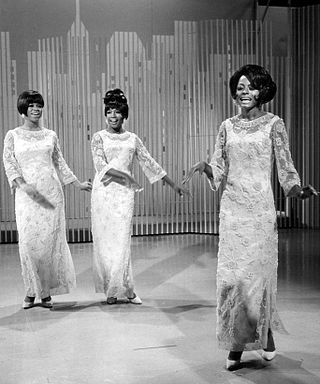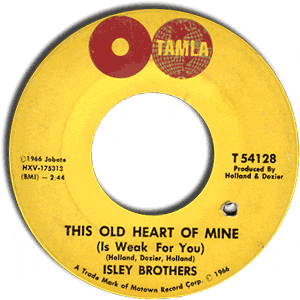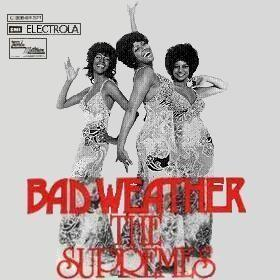
The Supremes were an American girl group and a premier act of Motown Records during the 1960s. Founded as the Primettes in Detroit, Michigan, in 1959, the Supremes were the most commercially successful of Motown's acts and the most successful American vocal band, with 12 number-one singles on the Billboard Hot 100. Most of these hits were written and produced by Motown's main songwriting and production team, Holland–Dozier–Holland. It is said that their breakthrough made it possible for future African-American R&B and soul musicians to find mainstream success. Billboard ranked the Supremes as the 16th greatest Hot 100 artist of all time.

Scherrie Ann Payne is an American singer. Payne is best known as a member and the final lead singer of the R&B/Soul vocal group the Supremes from 1973 until 1977. Payne is the younger sister of singer Freda Payne. Payne continues to perform, both as a solo act and as a part of the "Former Ladies of the Supremes" (FLOS).
Velma Jean Terrell is an American R&B and jazz singer. She replaced Diana Ross as the lead singer of The Supremes in 1970.

"Someday We'll Be Together" is a song written by Johnny Bristol, Jackey Beavers, and Harvey Fuqua. It was the last of twelve American number-one pop singles for Diana Ross & the Supremes on the Motown label. Although it was released as the final Supremes song featuring Diana Ross, who left the group for a solo career in January 1970, it was recorded as Ross' first solo single and Supremes members Mary Wilson and Cindy Birdsong do not sing on the recording. Both appear on the B-side, "He's My Sunny Boy".

"Stop! In the Name of Love" is a 1965 song recorded by the Supremes for the Motown label.

"Come See About Me" is a 1964 song recorded by the Supremes for the Motown label. The track opens with a fade-in, marking one of the first times the technique had been used on a studio recording.

"Stoned Love" is a 1970 hit single recorded by The Supremes for the Motown label. It was the last Billboard Pop Top Ten hit for the group, peaking at number seven, and their last Billboard number-one R&B hit as well, although the trio continued to score top ten hits in the UK into 1972. In the UK, it was the post-Ross Supremes' biggest hit, reaching number 3 in the singles chart. The single spent six weeks in the UK top ten and five weeks in the US top ten. The BBC ranked "Stoned Love" at number 99 on The Top 100 Digital Motown Chart, which ranks Motown releases solely on their all time UK downloads and streams.

"You Keep Me Hangin' On" is a song written and composed by Holland–Dozier–Holland. It was first recorded in 1966 by American Motown group the Supremes, reaching number one on the Billboard Hot 100. American rock band Vanilla Fudge released a cover version in June the following year, which reached number six on the Billboard Hot 100. Wilson Pickett recorded it in 1969. English singer Kim Wilde covered "You Keep Me Hangin' On" in 1986, reaching number one on the Billboard Hot 100 in June 1987. In the first 32 years of the Billboard Hot 100 rock era, "You Keep Me Hangin' On" became one of the six songs to reach number one by two different musical acts. In 1996, American country singer Reba McEntire's version reached number two on the US Billboard Hot Dance Club Play chart. The BBC ranked the Supremes' original song at number 78 on The Top 100 Digital Motown Chart, which ranks Motown releases by their all-time UK downloads and streams.

"I'll Be There" is the first single released from Third Album by The Jackson 5. It was written by Berry Gordy, Hal Davis, Bob West, and Willie Hutch.

"Reach Out and Touch (Somebody's Hand)" is the debut solo single of singer Diana Ross, released in April 1970 as the first single from her solo self-titled debut 1970 album by Motown Records.

"This Old Heart of Mine (Is Weak for You)" is a Holland–Dozier–Holland song that was a hit for American musical group the Isley Brothers in January 1966 during their brief tenure on Motown's Tamla label. Featuring Ronald Isley on lead vocal, "This Old Heart of Mine" peaked at number twelve on the Billboard Hot 100, and at number six on the Billboard R&B Singles chart.

"Love Is Here and Now You're Gone" is a 1967 song recorded by the Supremes for the Motown label.

The Supremes Produced and Arranged by Jimmy Webb is the twenty-sixth studio album released by The Supremes on the Motown label in 1972. It stands as a unique entry in The Supremes' discography as it was the only album produced by a non-Motown artist, the accomplished songwriter and producer Jimmy Webb. This album also marked the final appearance of Jean Terrell as the lead singer of The Supremes during the early 1970s.

"Floy Joy" is a song written by Smokey Robinson and released as a single in December 1971 by popular Motown female singing group The Supremes.

"When the Lovelight Starts Shining Through His Eyes" is a song written by Holland–Dozier–Holland and recorded in 1963 by Motown singing group The Supremes. It is notable as the Supremes' first Billboard Hot 100 Top 40 recording, following seven previous singles between January 1961 and September 1963 which failed to enter the Top 40. The single is also notable as the first Supremes single written and produced by Holland–Dozier–Holland, who had previously created hits for Martha and the Vandellas and Mary Wells.

"Automatically Sunshine" is a song written by Smokey Robinson and released as a single by Motown singing group The Supremes as the second single from their popular album Floy Joy in 1972.

"Bad Weather" is a song recorded and released as a single by Motown vocal group The Supremes in 1973. It was composed by Stevie Wonder and Lynda Laurence's brother Ira Tucker Jr., and produced by Wonder. The song was Jean Terrell's last charted single as lead singer of the Supremes and the second and last time Laurence was featured on a Supremes single.

"Everybody's Got the Right to Love" is a socially conscious–inspired pop song written by Lou Stallman, produced by Frank Wilson and released as a single in 1970 by Motown group The Supremes, who took the song into the top forty in mid-1970 following the release of "Up the Ladder to the Roof".

"Where Did Our Love Go" is a 1964 song recorded by American music group the Supremes for the Motown label.

"Your Wonderful, Sweet Sweet Love" is a song written by Smokey Robinson, recorded in October 1966 by Kim Weston. Her recording was not issued at the time as she left the label over a dispute over royalties in 1967. Weston's original version was first released in 2005.



















